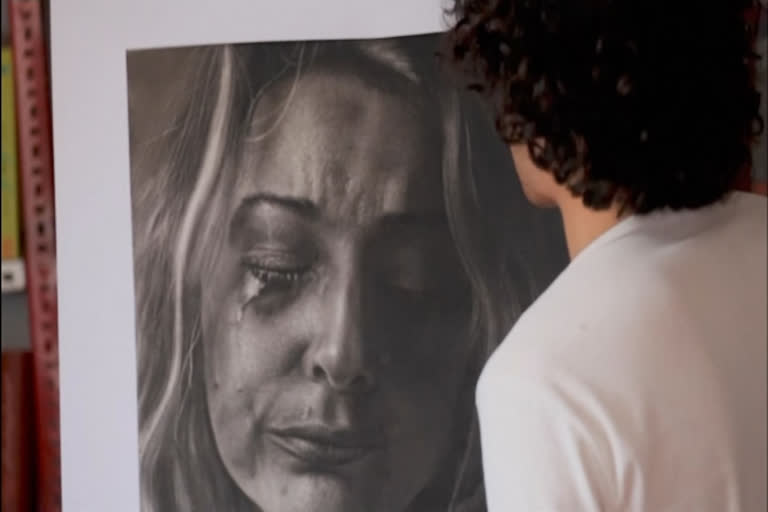Afghanistan: A woman closing her eyes and crying -- this is the last artwork by 20-year-old Musa after he destroyed much of his work following threats by Taliban. The young artist draws portraits of people, and many of his subjects are women, which is prohibited by the Taliban, who rule according to a strict interpretation of Islamic law.
"I think art and artists are going to be history in Afghanistan. And if it continues like this, art activities will be gone for good," said the Afghan sketch artist, who only gave his first name to protect his identity.
With the return of Taliban to rule Afghanistan 20 years later, much of the art and cultural achievements are at risk. Herat, one of the main cultural hubs in Afghanistan, houses the country's Jihad Museum.
On display inside is a visual narration of the 1979 Soviet Union's invasion of Afghanistan and the decades of war that followed. Museum caretaker Sayed Hassan, who has been looking after it for the last 18 years, implored the Taliban to safeguard the cultural and historical sites in the city.
READ: In Afghan hospital, unpaid doctors and rigid Taliban clash
In 2001, Taliban destroyed the iconic Bamiyan Buddha statues. And with their return 20 years later, they don't seem to have changed their ways.
When the group took over Herat in August, its fighters damaged many sculptures inside the Jihad Museum, but the artworks were later restored by locals in the city.
Taliban officials believe that any forms of arts which conflict with their strict interpretation of Sharia have no place in the country.
"The Islamic Emirate of Afghanistan is against any objects (artwork) that is prohibited in Islam," said Mawlavi Naeem-Ul-Haq Haqqani, the caretaker director of Herat provincial Culture and Information department.
In galleries and art centers across the city, artists are turning to painting artworks that don't show human figures.
56-years-old Mohammad Ibrahim, who owns a gallery and an academy to teach drawing, said all his female students stopped attending his classes. Across Afghanistan, women in many areas have been told to stay home from their jobs and much of public life.
The instructions are another sign that the Taliban are enforcing their harsh interpretation of Islam despite initial promises by some that they would be tolerant and inclusive.
AP



